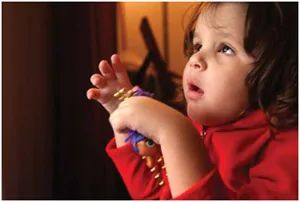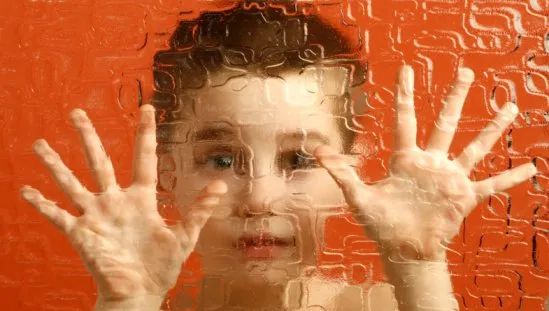
The idea that people with autism lack empathy is, in fact, a myth. Any parent of an autistic or autism spectrum child can tell you that. But here it is, World Autism Awareness month, and so I'd like to do my part to raise awareness.
The Science Behind Myth Busting
With what scientists call “mirror neurons”, our brains build patterns of behavior based on what we see. Parents, teachers, and peers can help children develop empathy simply by modeling empathetic thoughts and feelings toward the children and toward one another. Children learn by observing these examples of empathy, and absorbing them into their own behaviors. The Montessori Method also has a powerful tradition of lessons in grace and courtesy which go a long way toward instilling empathy in a young child.
“…we do not respect children. We try to force them to follow us without regard to their special needs. We are overbearing with them, and above all, rude; and then we expect them to be submissive and well-behaved, knowing all the time how strong is their instinct of imitation and how touching their faith in and admiration of us. They will imitate us in any case. Let us treat them, therefore, with all the kindness which we would wish to help develop in them.”
~Maria Montessori
For the sake of awareness, I would like to share a small sampling of the scientific community's findings. Each confirms what parental gut instinct and Maria Montessori already know: all children, including AS children, are capable of learning empathy. There are lots of scientific terms here, but the long and short of it is that children with autism may be short on understanding the mental idea of empathy, but they are full of emotional empathy.
Study #1: Empathic brain responses in insula are modulated by levels of alexithymia but not autism, Geoffrey Bird, Giorgia Silani, Rachel Brindley, Sarah White, Uta Frith and Tania Singer
Confirming previous findings, empathic brain responses to the suffering of others were associated with increased activation in left anterior insula and the strength of this signal was predictive of the degree of alexithymia in both autistic and control groups but did not vary as a function of group. Importantly, there was no difference in the degree of empathy between autistic and control groups after accounting for alexithymia. These findings suggest that empathy deficits observed in autism may be due to the large comorbidity between alexithymic traits and autism, rather than representing a necessary feature of the social impairments in autism.
Study #2: Who cares? Revisiting empathy in Asperger syndrome. J Autism Dev Disord, Rogers K, Dziobek I, Hassenstab J, Wolf OT, Convit A.
A deficit in empathy has consistently been cited as a central characteristic of Asperger syndrome (AS), but previous research on adults has predominantly focused on cognitive empathy, effectively ignoring the role of affective empathy. We administered the Interpersonal Reactivity Index (IRI), a multi-dimensional measure of empathy, and the Strange Stories test to 21 adults with AS and 21 matched controls. Our data show that while the AS group scored lower on the measures of cognitive empathy and theory of mind, they were no different from controls on one affective empathy scale of the IRI (empathic concern), and scored higher than controls on the other (personal distress). Therefore, we propose that the issue of empathy in AS should be revisited.
Study #3: The Intense World Syndrome – an Alternative Hypothesis for Autism, Henry Markram, Tania Rinaldi, Kamila Markram
The intense world that the autistic person faces could also easily become aversive if the amygdala and related emotional areas are affected with hyper-reactivity and hyper-plasticity. The lack of social interaction in autism may therefore not be because of deficits in the ability to process social and emotional cues as previously thought, but because a subset of cues are overly intense, compulsively attended to, excessively processed and remembered with frightening clarity and intensity. Autistic people may, therefore, neither at all be mind-blind nor lack empathy for others, but be hyper-aware of selected fragments of the mind, which may be so intense that they avoid eye contact, withdraw from social interactions and stop communicating.
Study #4: The Empathy Imbalance Hypothesis of Autism, Adam Smith
There has been a widely held belief that people with autism spectrum disorderslack empathy. This article examines the empathy imbalance hypothesis (EIH) of autism. According to this account, people with autism have a deficit of cognitiveempathy but a surfeit of emotional empathy. The behavioral characteristics of autism might be generated by this imbalance and a susceptibility to empathic over arousal.
Want More Info?
Whether as a parent or teacher, many of us benefit enormously by a better understanding of our spectrum children. Here is a great place to start,follow this link to Age of Montessori’s Professional Development Webinar entitled: What You Need to Know about Rising Rates of Autism and Dyslexia. Learn from Master Teacher Mary Ellen Maunz as she presents an in-depth view of these problems and explains how the brain can heal itself.
What You Need to Know about Rising Rates of Autism and Dyslexia

Description: Twenty to thirty percent of our children struggle with learning to read and one out of every 50 may be afflicted with Autism. Both are neurological wiring problems with multiple causes. These troubling statistics are compelling reasons to learn how to recognize these problems and what we can do about them. Master Teacher Mary Ellen Maunz will present an in-depth view of these problems and how the brain can heal itself.
More articles from Age of Montessori on autism





















